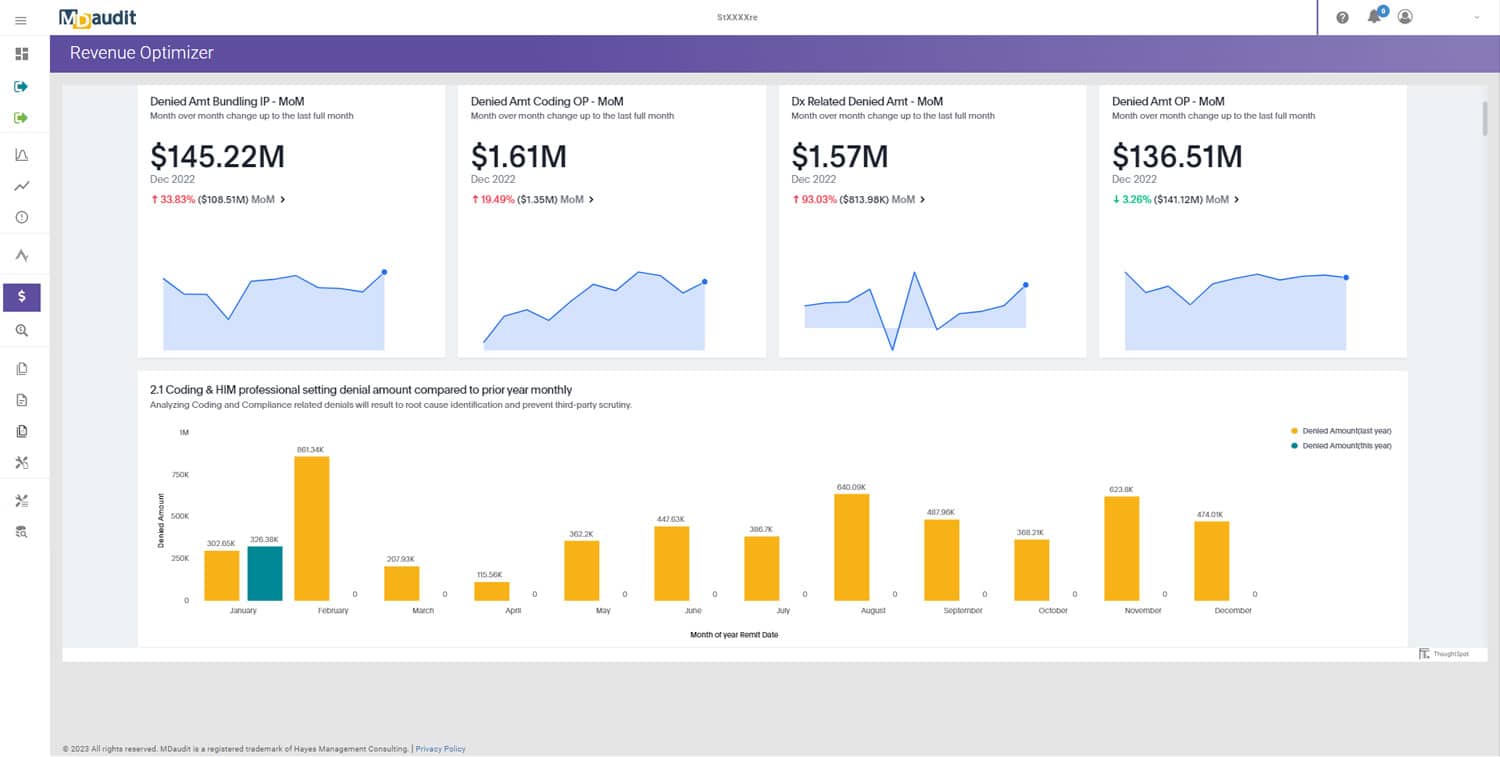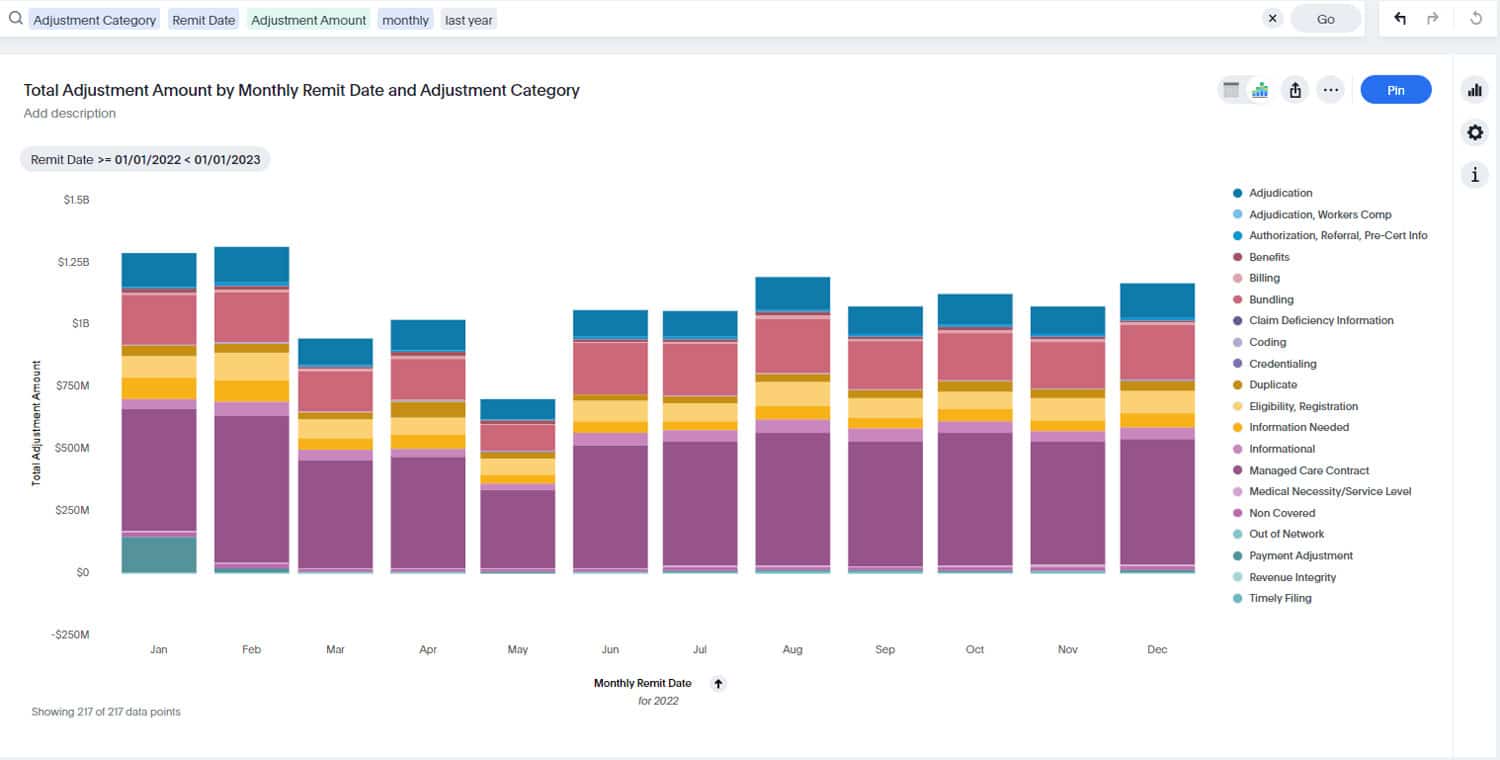In the first part of this two-part blog series on revenue integrity in the COVID-19 era, I discussed the long-term negative impact of the pandemic on healthcare organizations’ revenue cycle and compliance. In part two, we delve into revenue integrity readiness strategies to mitigate the potential that these impacts will do lasting damage.
Progressive revenue integrity models are designed to integrate systems and processes for the purpose of eliminating revenue cycle complexities arising from issues like COVID-19 that can fast become liabilities for providers. Within these models, healthcare organizations are increasingly finding that strong partnerships between revenue integrity, revenue cycle and billing compliance teams are essential. While these functions have typically operated in siloes, embracing shared monitoring and auditing processes can streamline budgets and improve revenue recoupment and generate long lasting collaboration and communication.
Revenue Integrity Readiness
To prepare for the scrutiny that will accompany claims related to COVID-19, healthcare organizations should increase their bandwidth within key areas of the revenue cycle continuum. Coding departments should be prioritized, as coders have the skill sets necessary to identify documentation errors—an area that is already a popular target for performance and process improvements. Because clinicians caught in the pandemic storm do not have time to be trained to shift with the rapid documentation changes, the burden is on coders to ensure billing accurately reflects services rendered.
One way to increase bandwidth is reassigning staff resources from areas where services have been reduced—such as outpatient services or elective procedures—and place them in the key areas of coding and auditing. Too, reallocating staff on the back end can help address needed resources during any future surges in COVID-19 cases. This could include patient financial services, where the day-to-day scope of activity may have decreased, such as billing or prior authorization departments.
Once resources are in place, healthcare organizations will benefit from bringing revenue integrity teams together with technology-enabled processes to proactively address potential revenue issues.
Key strategies include continuous auditing of COVID-19 claims to ensure accurate, compliant submission of claims to minimize denials. Revenue integrity teams must have systems in place to stay abreast of evolving guidance in a fluid regulatory climate and on the private payer front. These processes should include encounters that took place before and after the new codes and regulations were put in place.
Providers should also focus special attention on documentation to support telehealth claims, especially since this model of care is relatively new to reimbursement. The guiding principle for providers should be to “document everything” that occurs during the patient’s telehealth visit, including the purpose of the visit, assessment and any virtual examination or evaluation. Most importantly, documentation should reflect the thought process of monitored symptoms and conditions, what a clinician is ruling out and what needs following up.
Technology can be a critical enabler of these processes in terms of monitoring updates, staying abreast of changes across payer reimbursement policies and ensuring claims are compliant. For example, advanced solutions that automatically release new ICD10 codes and telehealth guidance can streamline the ability of a provider to operationalize changes and support ongoing monitoring.
Another key strategy is to monitor delayed or denied claims immediately for optimal reimbursement. Incorrect or incomplete claims that require adjudication can wreak havoc on a provider’s revenue stream. Amid the urgency and confusion generated by the pandemic, healthcare organizations should resist the urge to put addressing payment delays and denials on the back burner. Instead, best practices support setting up mechanisms to monitor delayed adjudication to identify the root cause quickly. Then, an optimal corrective action strategy can be put into play to ensure future claims are submitted with all the correct codes and documentation.
When technology is used to support ongoing monitoring, revenue integrity teams can rapidly analyze data in near real-time to uncover reasons for delayed and denied claims. Advanced solutions like MDaudit Enterprise allow organizations to set up analytics that encompass different scenarios directly related to COVID-19 services.
Closing the Divide
While the pandemic has introduced many bottom-line challenges, a unique opportunity exists for healthcare organizations to level all the silos that exist within the revenue cycle continuum—especially as it pertains to the divide between revenue cycle and clinicians. Revenue integrity departments can take the lead and capitalize on the current circumstances by implementing systems that support improved communication across stakeholders regarding coding errors and denial trends for future positioning. Healthcare organizations are wise to establish specific COVID-19 committees that include key staff on the compliance and financial sides of the house working in a synchronized, collaborative way to resolve issues.
With the federal government pouring sizable amounts of money into the healthcare system, providers can bank on an extensive review process to ensure the legitimacy of all COVID-19 related claims. And Medicare is only one part of the equation, as private health plans will also impose audits and safeguards to ensure proper reimbursement.
Readiness is essential. Healthcare organizations must have their revenue integrity house in order to ensure future success and sustainability. Preventive preparation is the best defense against having revenue cycles dramatically disrupted by COVID-19.
Interested in learning more about revenue integrity? Click here to download our whitepaper “An Unexpected Marriage: Tying the Knot Between Compliance and Revenue Cycle to Ensure Revenue Integrity”.








